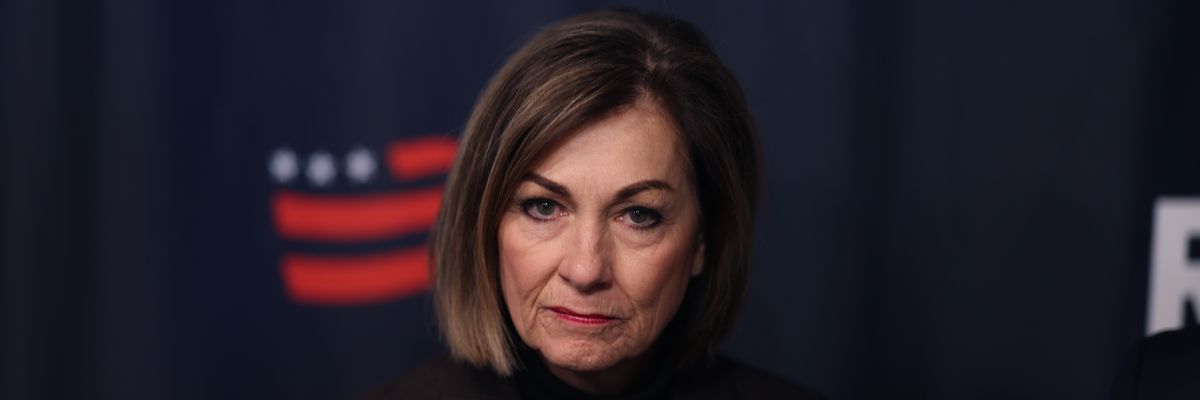Iowa's Republican-led government sparked outrage late last week by declining to participate in a federal program that would have provided low-income residents with $40 a month in additional food assistance during the coming summer.
Created by the U.S. Congress late last year, the Summer Electronic Benefits Transfer (EBT) for Children program aims to boost nutrition benefits for families with school-aged children who typically receive free or reduced-price meals during the school year. Starting in summer 2024, eligible families will receive a prepaid debit card with $40 per child for three months.
But in a press release issued Friday, the state's health and human services department said it had notified the Biden administration that Iowa would be opting out of Summer EBT, claiming the program doesn't sufficiently restrict the kinds of food that families can purchase.
Kim Reynolds, Iowa's Republican governor, echoed that assertion in a statement focused more on childhood obesity than food insecurity, which impacts one in 11 kids in her state.
"Federal Covid-era cash benefit programs are not sustainable and don't provide long-term solutions for the issues impacting children and families," said Reynolds. "An EBT card does nothing to promote nutrition at a time when childhood obesity has become an epidemic."
"Starvation is not a legitimate strategy to reduce childhood obesity."
The Iowa Hunger Coalition (IHC) noted that because of the government's decision, 240,000 children in the state will lose out on $120 in food assistance this coming summer.
"This is an unconscionable decision," Luke Elzinga, the IHC's board chair, said in a statement. "Announcing three days before Christmas that we've deliberately chosen not to feed hungry kids? The Dickensian parallels write themselves."
Elzinga criticized the state government's suggestion that "low-income Iowans can't be trusted to make their own choices about what to feed their kids" as "incredibly insulting."
"We've somehow decided that parents know best when it comes to school curriculum but not what to feed their kids? Starvation is not a legitimate strategy to reduce childhood obesity," Elzinga said, adding that "an abundance of academic research has made clear the link between food insecurity and obesity in the United States."
Hunger is growing across the U.S. as safety net expansions enacted during the coronavirus pandemic continue to unwind. Some states have moved to make crisis-era programs such as universal free school meals permanent while others, such as Iowa and Arkansas, have worked aggressively to curb benefits for poor residents.
IHC said Saturday that Iowa's food banks are currently seeing record-breaking demand and warned that the government's pledge to bolster existing state-level programs while refusing to take part in Summer EBT will exacerbate the crisis.
"Hunger is a policy choice, and this is just one more unfortunate example of that fact," said Elzinga. "Summer EBT should be a bipartisan no-brainer policy win for Iowa's kids. The Iowa Hunger Coalition will be making this an issue with the Iowa legislature in 2024. We can not and will not accept this disastrous decision by Governor Reynolds. It's deplorable that Iowa's leadership has chosen to make feeding children a political issue."
Democratic State Sen. Sarah Trone Garriott toldThe Gazette on Friday that the government's rejection of Summer EBT is a "huge loss for Iowa."
"If we're talking 20-some million (dollars) coming from the federal government, I don't think the state is going to be matching that," said Trone Garriott, who works with the Des Moines Area Religious Council Food Pantry Network. "They are just going to be leaving it to the charities to make up the difference."
